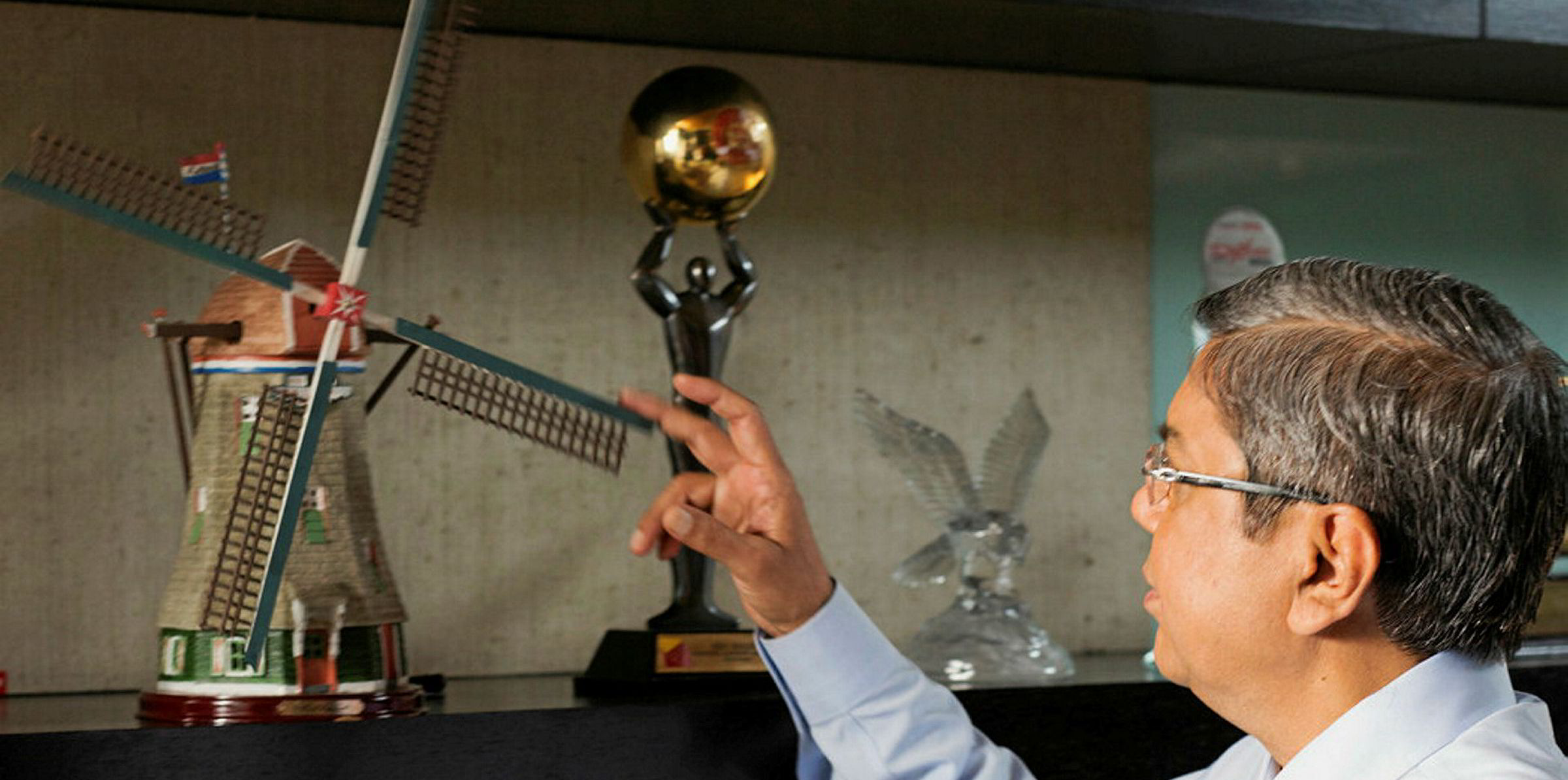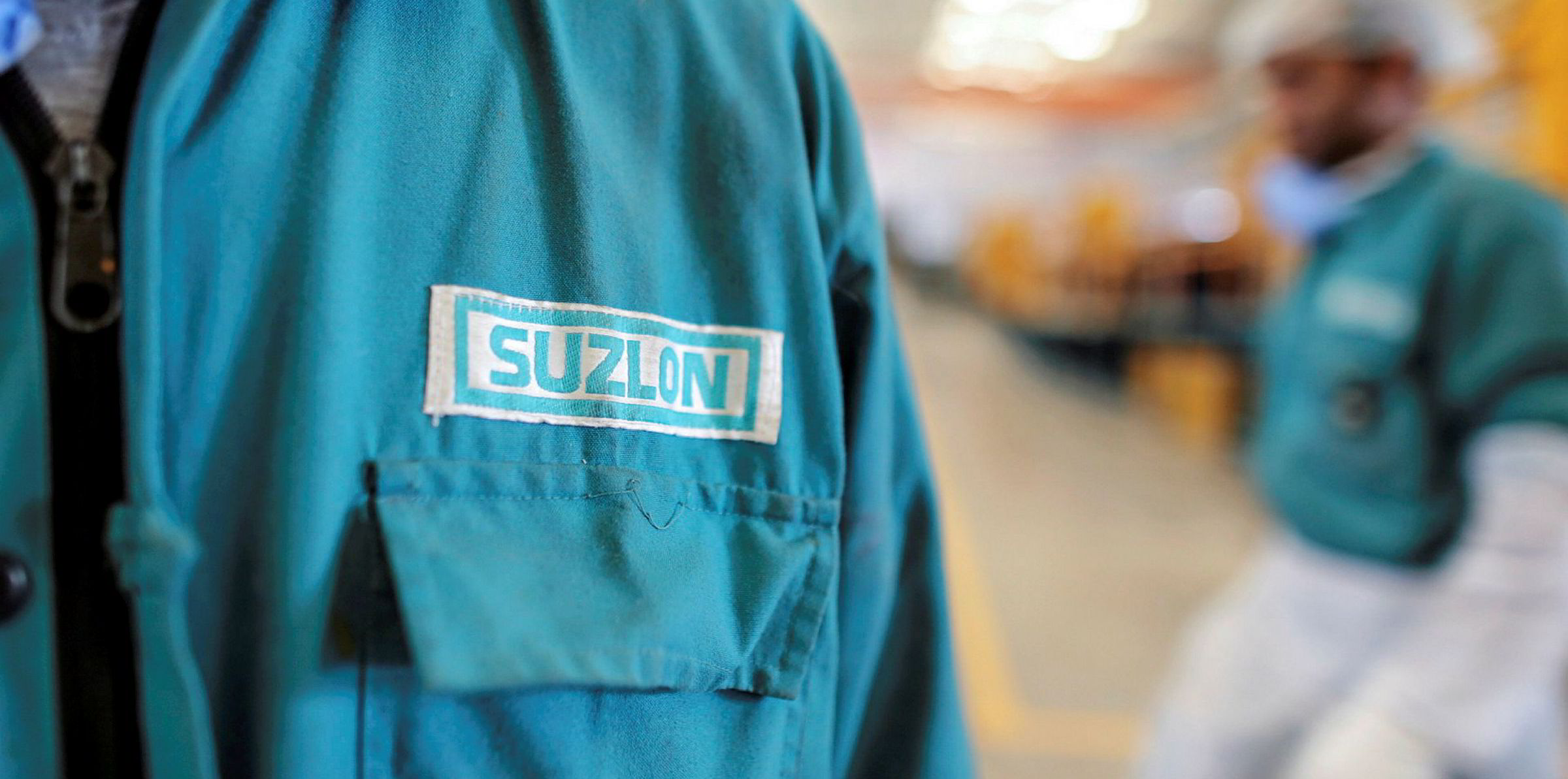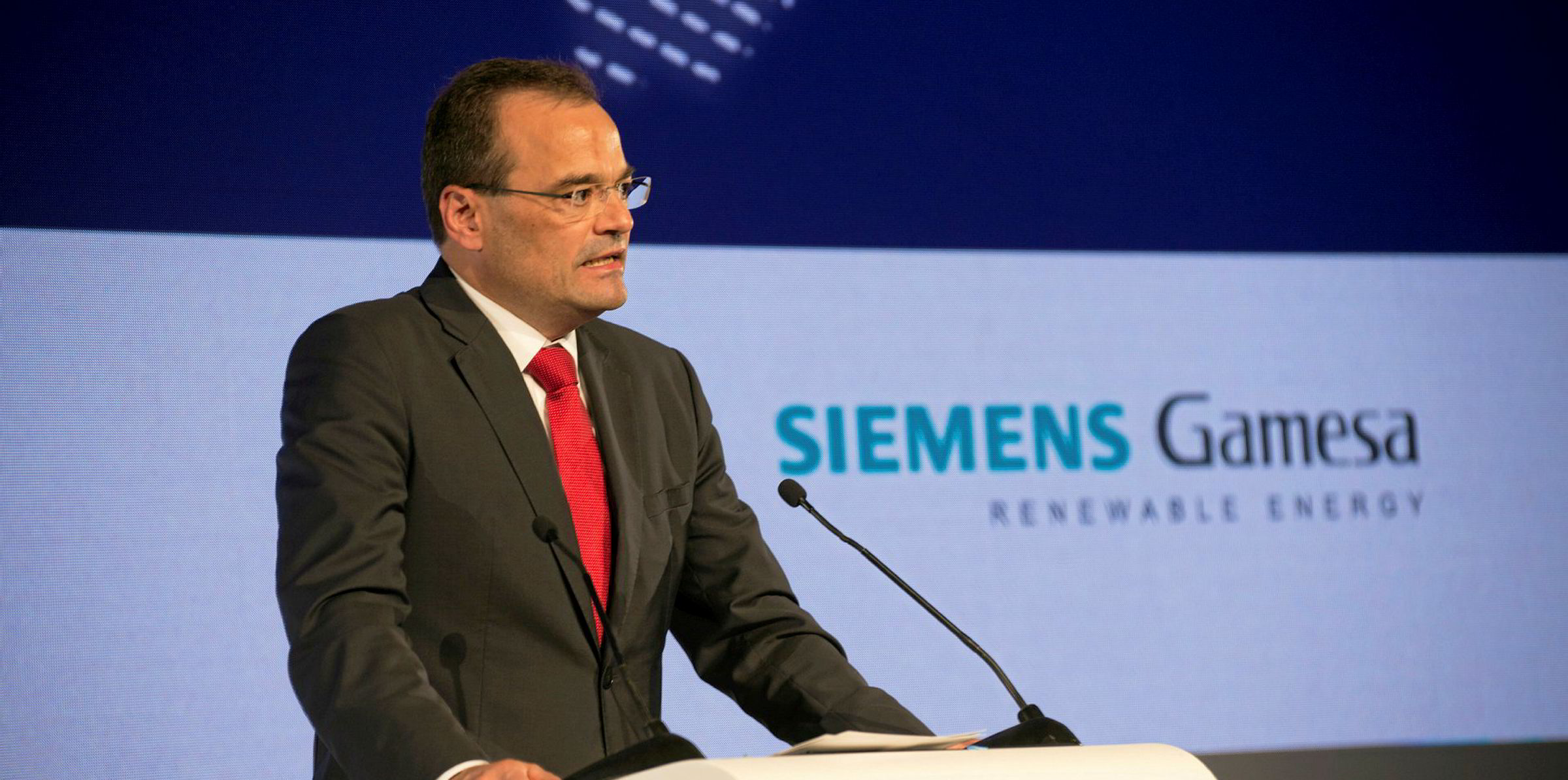After a late-night board meeting, embattled Indian wind OEM Suzlon approved measures that would see parts of its massive debt converted to shares and paved the way for potential asset sell-offs under a restructuring plan being considered by its lenders.
The company’s board agreed various measures needed to enact the plan, which is crucial to Suzlon’s ongoing viability as it struggles under the weight of a $1.5bn-plus debt pile that has hobbled its ability to operate in the market.
The list includes the issuing of equity shares converted from debt and the authority for “divestment/dilution/disposal” of the company’s investments or assets.
The deal lines up Suzlon’s existing backers, including founder Tulsi Tanti and Indian billionaire Dilip Shanghvi, to inject 4bn rupees ($55m) in return for shares or other instruments.
Suzlon's shares were 3.5% down in Mumbai at lunchtime on Friday, mirroring a wider decline in a market hit by fears of coronavirus.
The restructuring plan currently before Suzlon’s creditors involves splitting its debt into “sustainable and unsustainable” piles, and according to reports could see lenders taking stakes in the business in return for a steep ‘haircut’ on what they are owed.
Lead lender the State Bank of India has already approved the plan.
Suzlon’s lenders were looking to extend a deadline to 30 April to reach an agreement under a creditor ‘standstill agreement’, its auditor said earlier in February.
Suzlon booked a net loss of 7.43bn rupees ($104m) for its latest financial quarter ending December 31, as it admitted its wind turbine operations were “at a subdued level with nominal allocation of capital”.
That was brought home by the figure of just 2MW – a single turbine – given for delivery volumes in the quarter, and 49MW for the last nine months, by a company that not too many years ago was among the biggest wind OEMs in the world.



